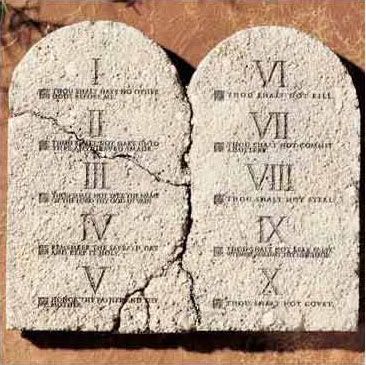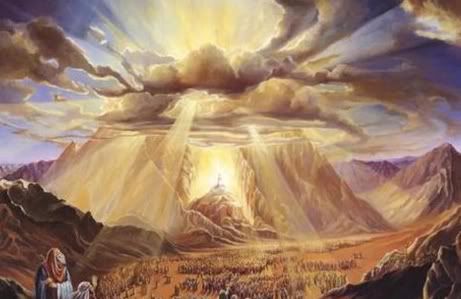This post is aimed at practicing Christians. I ask you simply to ponder some things during these few remaining days before Christmas. I don't expect you to agree with what I write, but I do ask you to think about these truths and consider doing something about our approach to this Holy Season.
First, while most of us think of this time as "Christmas," we are still in Advent. There are only three days of Advent left. Yet I doubt that most Christians have given much thought to the spiritual implications of this season which is quickly passing.
Most of us have been so deep into “Christmas” that Advent has gone by with only a passing nod. And I am talking about how Christians celebrate this Holy Season, not about how others approach it.
The purpose of Advent is to prepare Christians spiritually for the coming of Christ. But, unfortunately, most Christians have for weeks now been swept up into “Christmas” Madison Avenue style. The reality of our lives is that the culture has us trained to skip Advent. And, even in the Church we have bowed to much of that pressure.
By the time Christmas actually gets here we are worn out with Christmas, and have been involved in precious little spiritual preparation. And, because we are totally worn out - and unprepared spiritually - Christmas Day, as a religious holiday, is a flop. Most churches in America don’t even have a worship service on Christmas Day. We end “Christmas” on Christmas Eve, which is, of course, still in Advent.
And “Christmas Time,” that time from December 25 to January 6, is essentially ignored in many churches, although it is an official time on the Church calendar and has been for over 1500 years. The “twelve days of Christmas” are remembered in an old song, but seldom in our lives.
By the time evening of the first day of Christmas arrives, we are spent. We have already sung all the carols, opened all the presents, eaten ourselves into a stupor, are worried about getting the tree down and putting away the decorations; and, far too often, are also worrying about how we are going to pay for all that we charged to our credit cards for “Christmas.”
I have never been able to change how we celebrate Advent and Christmas in any local church I have served -- because members would not tolerate it. I may have wanted to do it, but wanting is one thing, and doing is quite another.
But I do think that we need to know that, when we are caught up in the consumerist myth of Christmas as a grand spree of planning, decorating, spending and gluttony, we are giving up something that, until the last half of the last century, was a precious part of celebrating the birth of Christ throughout the entire history of the Church: And that is simply waiting for Christmas.
Advent is the time of waiting for Christmas; the God-given chance to wait and ponder and wonder; to pray and hope and anticipate and marvel; the time to look forward spiritually to what Christians believe is one of the greatest events of all time: the Birth of the Messiah.
And then, after that birth, the Church has always said that we are to celebrate a glorious time of joy and peace called “Christmas Time;” a time that does not end until January 6th ; that is, until the Day of the Epiphany: the manifestation of Christ to the gentiles, and the traditional day that the magi are said to have arrived in Bethlehem.
Can we change all this and put a true Advent and a true Christmas season back into our church life? Theoretically we could try; but I seriously doubt we could do it. The chances are that we are incapable of turning the tide of the culturally controlled, commercialized Christmas, which has now so pervasively invaded our homes and, it is painfully obvious to me, the Church.
The truth is that most Christians like things in their local churches just the way they are. And it is equally true that most of us like to celebrate Christmas the way we have always celebrated it.
But, even if we Christians don’t change our habits within our faith communities, some of us could do something individually, if what I am saying rings a bell with a few of you. And that something is, each in our own way, in our own families, in our own hearts, remember to celebrate Advent in Advent and Christmas at Christmas.
Sue and I do this, and we believe that we have a more spiritually rewarding Holy Season than we did before we started paying attention to the distinctions between Advent and Christmas. We have found that it is actually possible to slow down, take a deep breath, and sit in wondrous anticipation of the miracle that is about to unfold before us. And, having gotten some personal perspective on Advent, we can wait for Christmas to come.
Perhaps it is too much to ask of others this year, but Advent and Christmas come to us every year. And it is never to late to learn what they truly were designed to be. I honestly believe that Christians could move forward spiritually were we only to go back to the intended purpose of these Holy Days for our faith, and then plan our lives according to a spiritual calendar and not a secular one.
To get us pointed in that direction I want to share with you two beautiful yet simple writings by two of the most spirit filled Christian writers of the last half century. First, something Henry Nouwen wrote about this Holy Season. It’s very short.
Listen to what he has to say about this marvelous season of Advent/Christmas.
“Our salvation comes from something small, tender, and vulnerable, something hardly noticeable. God, who is the Creator of the Universe, comes to us in smallness, weakness, and hiddenness. I find this a hopeful message. Somehow, I keep expecting loud and impressive events to convince me and others of God’s saving power; but over and over again I am reminded that spectacles, power plays, and big events are the ways of the world. Our temptation is to be distracted by them and made blind to the “shoot that shall sprout from the stump of Jesse.”
Only one who understands the spiritual waiting and expectation that is Advent could write that.
And finally, let me share with you an Advent prayer of hopeful intercession, a prayer that is a call to Christ to come to us once more. A prayer that could only be written to one who has lived Advent in true anticipation of the coming of the Lord. This Christian prayer is by Frederick Buechner.
“Thou Son of the Most High, Prince of Peace, be born again into our world. Wherever there is war in this world, wherever there is pain, wherever there is loneliness, wherever there is no hope — come, thou long-expected one, with healing in thy wings.
Holy Child, whom the shepherds and the kings and the dumb beasts adored, be born again. Wherever there is boredom, wherever there is fear of failure, wherever there is temptation too strong to resist, wherever there is bitterness of heart, — come thou blessed one, with healing in thy wings.
Savior, be born in each of us who raises his face to thy face, not knowing fully who he is or who thou are, knowing only that thy love is beyond his knowing, and that no other has the power to make him whole. Come, Lord Jesus, to each who longs for thee -- even though he has forgotten thy name. Come quickly.
Amen.”
My prayer for each Christian is that we will make room in our hearts for the few remaining days of Advent, and for the glorious coming of the Savior at Christmas. And for all of my dear friends, both those who do and those who do not share my particular faith, I pray that you will find peace and blessings in your lives now and in the new year that comes swiftly upon us.
God bless you all.






